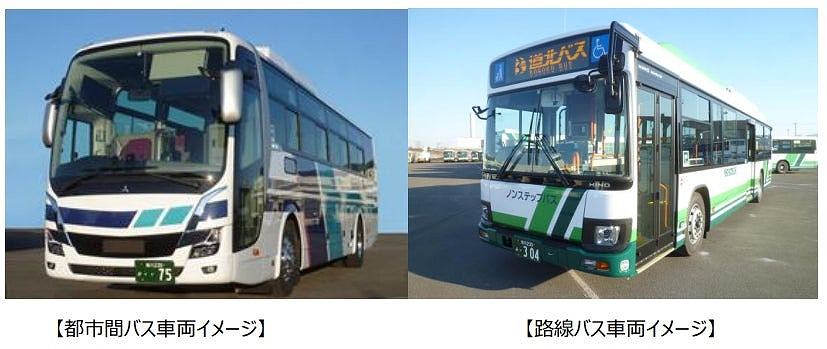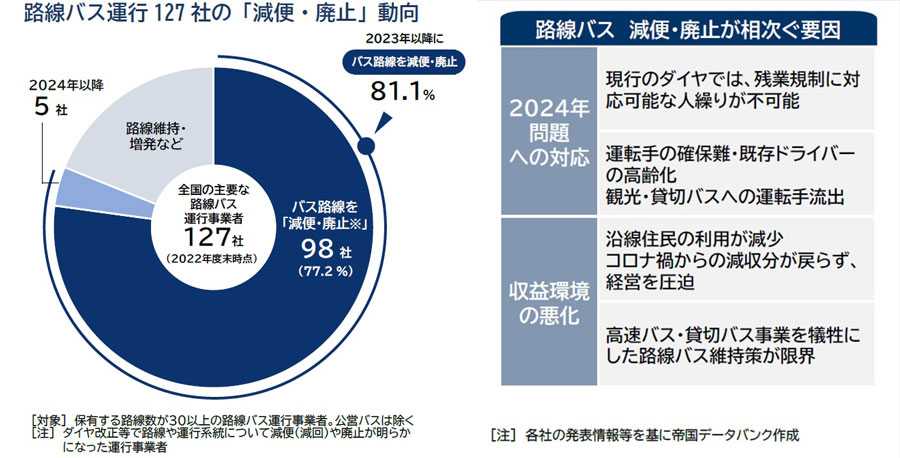
Dohoku Bus Implements Contactless Payment for Express and Local Buses

Teikoku Databank has revealed survey results indicating that 80% of route buses have implemented service reductions or discontinuations this year due to difficulties in maintaining schedules resulting from a shortage of drivers.
The survey analyzed 127 private-sector companies, excluding public enterprises, with over 30 routes each at the end of the fiscal year 2022. Companies that only operate express bus routes were excluded. In total, these 127 companies operate approximately 14,000 routes.
Among those surveyed, 98 companies have implemented the reduction or discontinuation of at least one route in 2023. Factoring in companies planning or considering such measures in 2024, the number jumps to 103, exceeding 80% of the total. These service cuts or eliminations have been implemented in nearly every prefecture, with noticeable reductions and discontinuations, particularly in suburban routes and early morning/late night services, even within the densely populated metropolitan areas.
The lack of manpower was cited by almost all companies as the reason, and although they have previously discontinued intercity express routes to maintain service, the increasing age of drivers and manpower shortages have led to a point where managing their operations became untenable, prompting route reductions and discontinuations. Some companies have revised their schedules to cope with the ‘2024 problem’—a cap of 960 hours of overtime work per year for drivers—while others have reduced services due to unprofitability caused by population declines along their routes. On the other hand, there are instances where services have been increased, such as on urban weekday routes or to shopping malls on holidays, where revenue generation is more certain.
Furthermore, compared to 2019, over half of the 307 companies surveyed have seen a reduction in employee numbers. While the private charter bus industry contributed to staffing inflows during the pandemic, there has been a downward trend since, with staff moving towards better-paying charter sightseeing buses. This backdrop has made it difficult to increase the number of drivers needed to maintain schedules, including preparations to deal with the ‘2024 problem’.
Low salary levels relative to other industries and poor working conditions due to long hours are affecting employee retention. Additionally, the inability to fully recover passenger numbers that dropped during the pandemic and the financial impact of rising fuel costs are compounding issues, leaving fewer bus companies with the capacity to raise wages to attract drivers, making it harder to find a solution to the problem.